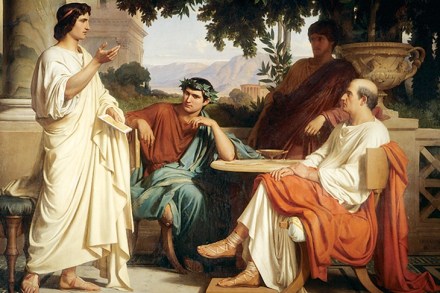‘If you steal this book I’ll beat your brains out’
‘I would lend you my copy, but the fucker who previously borrowed it still hasn’t given it back.’ Those precise words were uttered to me by an eminent churchman, more in anger than in sorrow, while chatting at high table about a book he believed I might find useful. Its title has long since slipped my mind, but I remember thinking at the time: who lends a book to a friend and seriously expects to get it back? Few things can be so often borrowed and so seldom returned. I must confess to having felt a shudder of illicit magic when intoning the words ‘Anathema marathana’ This new and delightfully

















